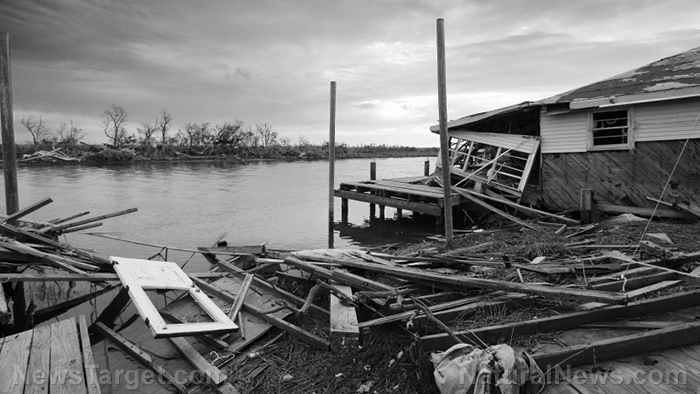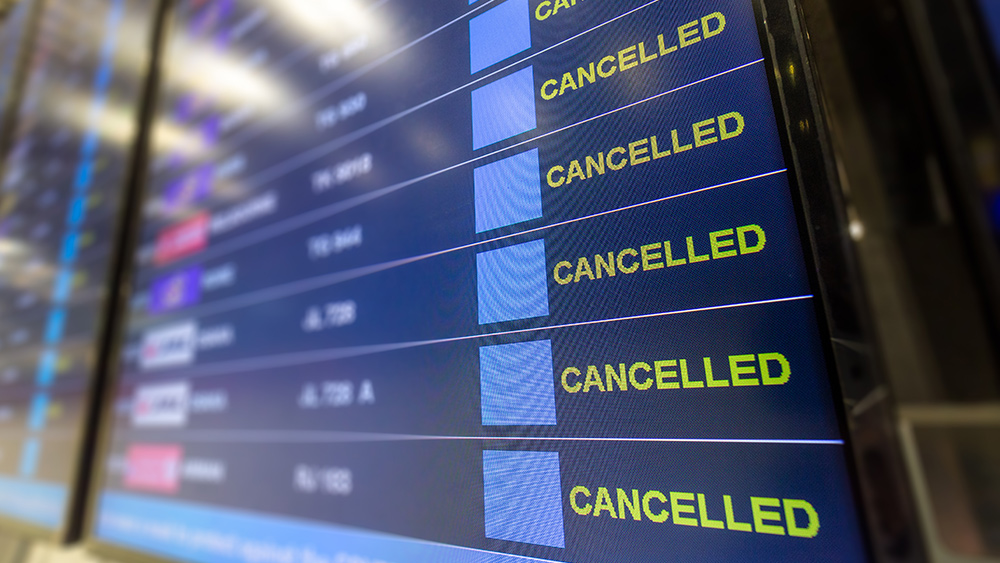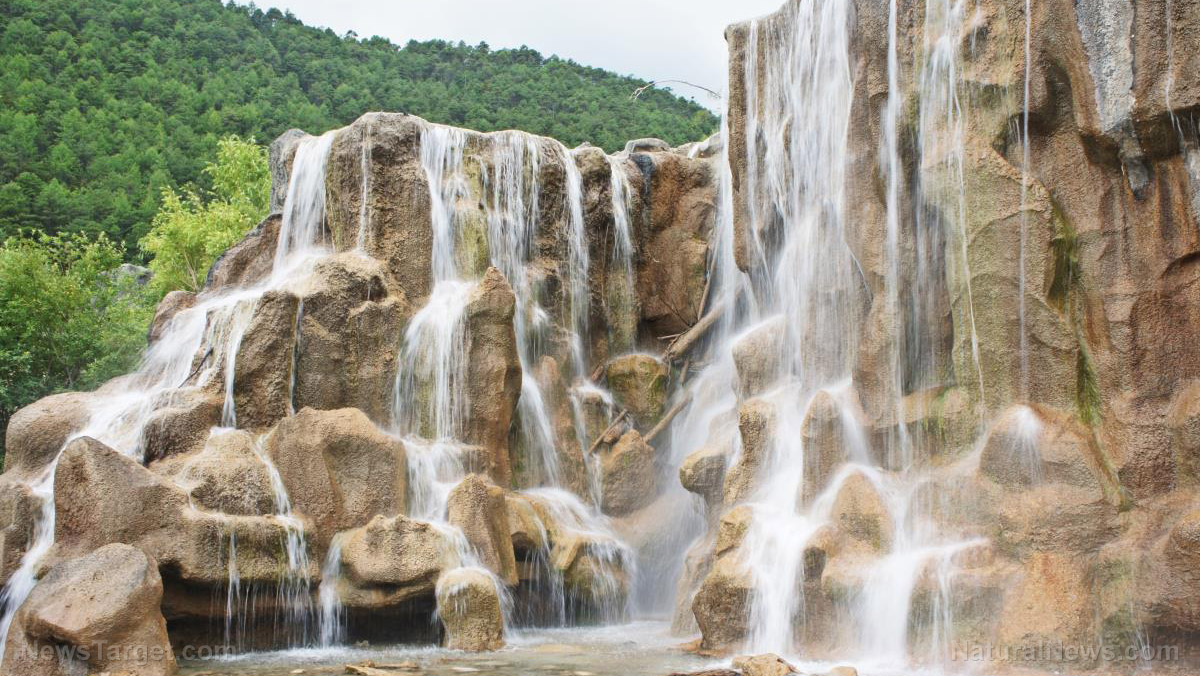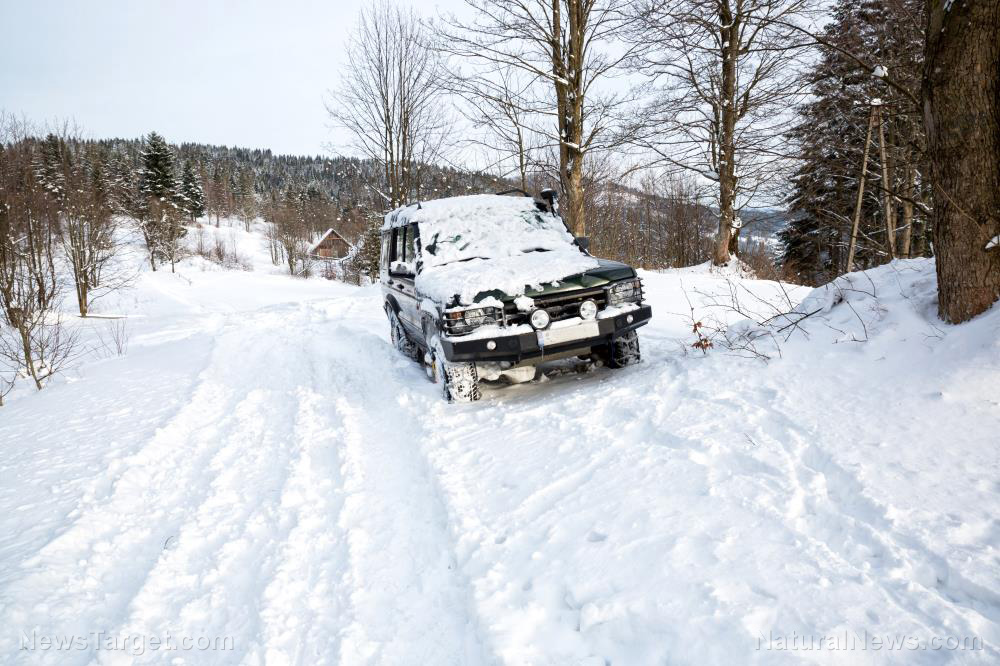
There is only so much the government can do for you when hurricanes strike. At the end of the day, your ability to keep yourself and your family safe will depend on what items you have stockpiled for such occasions. (h/t to AskAPrepper.com)
Keep these 10 items in store for the next time a hurricane strikes:
Food and water
These are some of the most important necessities you should have in your storage. Water is crucial for both drinking and hygiene. Unfortunately, access to clean water is limited during hurricanes. Don't depend on floodwater or in bodies of water in your area as they are most likely contaminated and not potable. Instead, you can buy retail water or fill special containers like water bricks.
When it comes to food, it's important that you take shelf-life into account. Items that last for 25 years are not necessary though; long-lasting, ready-to-eat items like nuts, granola, high-calorie bars, and canned foods work just as well. Never underestimate the comfort that variety in food options can bring during a hurricane.
Gasoline
Don't you ever wonder why gas is such a big deal in apocalyptic movies? Having enough fuel on hand will get you a long way in ensuring not just your survival, but also your comfort. You can use it to power your car and tools, cook your food, and provide heat, among others.
Unfortunately, gasoline is not forever. When storing it, make sure to indicate when it was purchased so you have a good idea when it'll become stale and unusable.
Batteries
Batteries haven't outlived their usefulness. During hurricanes, battery-operated devices like small televisions, two-way radios, and flashlights will provide entertainment, comfort, and crucial information. However, be sure to invest in high-quality ones as not only do they have more power, they also last longer. (Related: Remember these 5 lessons from Hurricane Katrina to prepare for survival during any disaster.)
Flashlights
Hurricanes tend to cut off power lines, leaving entire locales in the dark during nighttime – literally. Flashlights are handy tools that provide much-needed illumination, especially during emergencies. As in the case of batteries, it pays to invest in really good ones for maximum reliability.
Hygiene system
During a hurricane, proper hygiene spells the difference between health and disease. You can invest in hygiene systems that use colloidal silver to keep your body clean as they don't utilize highly valuable water.
First aid kit
Violent weather puts you and your family at high risk of sustaining injury or getting sick. A first aid kit that contains basic treatment supplies, such as bandages and a tourniquet, will help keep you away from danger.
Cash
Depending too much on your local ATM will cost you a lot during a hurricane. Make sure to have enough cash on hand for emergency purchases. Ideally, your hurricane stash should be enough for three months' worth of living expenses. For most people, such an amount may seem like a financial burden indeed, but saving up as early as possible will make the process more tolerable.
Tarps and cords
Do not expect a hurricane to be kind to your home. In the off-chance that downed trees and power poles, as well as flying debris, punch holes on your house, a large tarp at the ready will allow you to remedy the problem and prevent significant water damage.
There are many other ways you can utilize ropes, so they really make for a good investment. Aside from tying tarps in place, they can also be used to secure your belongings. Make sure to store your rope and tarp close to each other and in a dry place.
Cycle oil
A chainsaw is great for removing fallen trees and other large, wooden pieces after a hurricane. Keeping some supply of cycle oil will allow you to sharpen and maintain your chainsaw – and other powered tools and machines – for emergency use.
Ammunition
Looting is a common offshoot of hurricanes. Evil people will take advantage of the situation and take anything of value, whether it's your business, your possessions, or even your gun. Keeping a store of ammo is probably your best shot at protection from people with evil intentions.
Learn more tips on how to prepare for natural disasters at Preparedness.news.
Sources include:
Please contact us for more information.



















